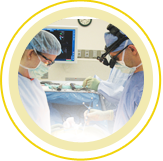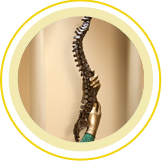Even the busiest person can find a spare minute in their day to exercise. That’s good news because a recent study has found that women who get just one minute of exercise per day had four percent higher bone density. If you have two minutes, that’s even better! Those who exercised for over two minutes had a bone density six percent higher than those who exercise under one minute per day.

Three Steps to Stronger Bones
Although doing small amounts of exercise is beneficial, getting 30 minutes of exercise five days a week is even better.
In order to lessen your chances of developing osteoporosis, it is important that you perform weight-bearing exercises, resistance exercise, and eat a diet that is high in calcium and vitamin D.
Weight Bearing Exercise
Weight bearing exercises are those that require you to support your body weight with your legs. they often tend to be more high-impact in nature, but these activities tend to strengthen muscles, ligaments, and joints. The most common forms of weight bearing exercises include:
- Walking
- Running
- Hiking
- Jumping rope
- Dances
- Tennis
Resistance Exercises
When most people think of “going to the gym” they think of resistance exercises. These activities require muscles and tendons to pull the weight as they’re supported by the bone. In order to do these exercises, you can use any of the following:
- Free weights, such as dumbbells or barbells.
- Weight machines that use cables and pulleys to target a certain area.
- Medicine balls, which can be used in conjunction with weight bearing exercises.
- Resistance bands, a versatile form of equipment that provides resistance when stretched.
- Your own body. You can use your own body weight to do push ups, pull ups and squats.
Improve Your Diet
You are what you eat! By improving your diet and consuming more foods rich in calcium and vitamin D, you can help to increase bone density and prevent bone loss.
Calcium: It is best for people to begin adequate calcium intake at an early age, as bone mass begins to decrease around the age of 30. After age 30, calcium helps decrease bone loss, strengthen bones, and decrease the risk of fractures.
The recommended daily intake of calcium for women 25 to 50 years old and women over 50 who take hormone replacements is 1,000 mg per day. Women over 50 who do not take hormone replacements should take 1,500 mg of calcium per day. Men 25 to 65 years old should take 1,500 mg of calcium per day. Men and women over age 65 should take 1,500 mg of calcium per day.
Vitamin D: To help prevent bone loss and fracture, adults should take at least 800 mg per day of vitamin D. Many calcium supplements contain vitamin D. You can also get vitamin D through foods such as egg yolks, fish, and fortified milk and cereals. Halibut, mackerel, sardines, shrimp, pink salmon, and cod liver oil are good sources of vitamin D.
If you have any questions about osteoporosis, or if you would like to make an appointment, please call Dr. Cohen, Dr. Saullo, or Dr. Torrealba at the Spine & Scoliosis Specialists at 336-333-6306.



